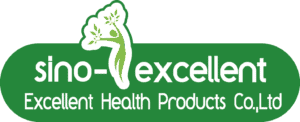According to Euromonitor, in 2018, the U.S. and China ranked first and second, respectively, in the global healthcare market with a market size of $71.8 billion and $40.2 billion (RMB 257.5 billion).
The sudden coronavirus epidemic has caused great concern for people’s health. During the neo-coronavirus epidemic, the global dietary supplement market experienced rapid growth, with mineral supplement sales growing at an unprecedented rate.
A small observational cohort study (preprint, not peer-reviewed) of 43 subjects published in June of this year showed that a combination of vitamins D3 and B12 and the mineral magnesium suppressed the progression of COVID-19 in hospitalized patients, which caused a minor sensation.
While no recommendation should be made for the use of vitamins or minerals to prevent, treat, or cure COVID-19, there is reason to focus on this combination of nutrients: vitamin B12 promotes healthy gut flora; vitamin D protects the respiratory epithelium; and magnesium acts by helping to bind vitamin D, which not only acts as an enzymatic cofactor in hormone metabolism, but also as a bronchodilator and vasodilator in its own right.
Thankfully, more and more consumers are seeking healthier vitamin and mineral intake strategies, especially these days, and are taking a keen interest in supporting their own health. There is no doubt that COVID-19 has drawn attention to the state of health and the possibility of achieving this through diet and supplements.
The mineral supplement market is growing against the trend, which category is the real?
Ohad Cohen, CEO of Gadot Biochemicals, says, “Let’s face it: people are living in stressful times, and health-conscious consumers are looking for the health help they can get.”
This bodes well for mineral supplements, as Ohad Cohen continues, “Due to the current global health situation, we have seen a significant increase in the use of mineral supplements to help strengthen the immune system and aid in stress relief.”
In fact, there is currently a strong demand for DIY immune boosters. And, according to James DiNicolantonio, PharmD, AIPD’s Director of Scientific Affairs, “The public is beginning to realize that the health of the immune system is directly dependent on the body’s overall nutritional status, and that minerals form part of our overall nutritional status.”
James DiNicolantonio goes on to say that these essential elements are key components of endogenous antioxidants that act as cofactors and contribute to our antioxidant status. He says, “For example, copper and zinc will make up superoxide dismutase, selenium is important for glutathione peroxidase, and magnesium is important for glutathione levels.”
He added, “All the evidence suggests that poor mineral status can lead to adverse consequences following viral infection.”
Mark K. Williams, Ph.D., a biochemist at Mineral Logic, states, “A whole-food diet provides a more complete diet and provides the supportive nutrients the body needs, not just the minerals. Fiber, prebiotics and probiotics, electrolytes, and all the trace minerals and elements found in food allow our bodies to properly digest minerals, proteins, carbohydrates, and fats in the most efficient way possible.”
But mineral supplements will have a place, now and in the future, Tom Druke notes, “As people live longer, they will be under pressure to maintain their quality of life for longer periods of time. Mineral supplements that address specific health concerns will continue to grow.”James DiNicolantonio noted that it is more important now than ever, and that sales of minerals related to immune support have been the fastest-growing category of supplements over the past six months. Copper and selenium have certainly benefited, but the real winning minerals are zinc and magnesium.
Ohad Cohen noted that studies have also linked zinc to better cell growth and wound healing, protein synthesis, and the functional performance of vitamins such as vitamins E and A, as well as hormones, from sex hormones to insulin. He added that a daily daily intake is necessary because “the body does not have a dedicated zinc storage system”.
But zinc can’t do it all on its own, which is where magnesium comes in. Magnesium helps the body regulate zinc levels, and zinc allows the body to absorb magnesium more efficiently. He explains, “It blocks absorption only when an abnormally high dose of about 142 mg of zinc is taken daily.”
Thus, zinc and magnesium taken together in the right dose can work to each other’s advantage, Ohad Cohen concludes, “They do so well that many oral supplements on the market (tablets, capsules, etc.) combine the two.” In fact, the Gadot brand recently introduced a direct oral magnesium-zinc formula, which he says requires no water, making it very easy to take.


